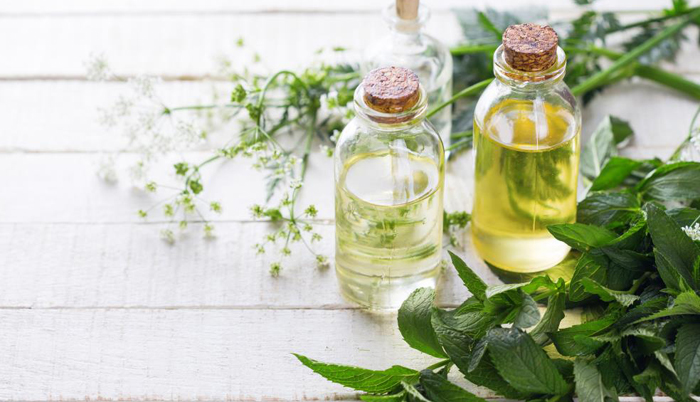![]() Home > Health
Home > Health
Algerian Thyme And Lesser Calamint Essential Oils Are Excellent Weed Biocontrol Agents, Reports Study

News Target | Natural News
![]() May 31st, 2022 | 14:46 PM |
May 31st, 2022 | 14:46 PM | ![]() 542 views
542 views
NATURALNEWS
Thyme and calamint are two herbs from the mint (Labiatae) family used in both food and natural medicine. A culinary staple even to this day, thyme is widely used as a seasoning and as medicine for whooping cough, sore throat, arthritis, stomach issues and skin disorders, among others. Thyme also yields a sweet-smelling essential oil that’s used not only for aromatherapy but also for cleansing wounds, treating infections, clearing lung congestion and stimulating the immune system.
Calamint, on the other hand, is an aromatic herb with diaphoretic (sweat-inducing) and expectorant properties. These properties make it a good cold and cough remedy. Besides reducing fever and relieving stomach complaints, calamint is also used to treat depression, insomnia and painful menstruation. Like thyme, calamint is also used to flavor dishes. Its leaves, meanwhile, are dried to make a refreshing herbal tea.
Beyond their culinary and medicinal applications, however, thyme and calamint can be used in agriculture. Researchers from Algeria recently evaluated the usefulness of essential oils derived from a different species of thyme and of calamint in eliminating harmful weeds.
Thymus fontanesii, also known as Algerian thyme, is a traditional cough and cold remedy, while Satureja calamintha, or lesser calamint, is a garden plant commonly used as a filler. The researchers tested the toxic effects of these plants’ essential oils on different weeds and found that both oils contain plenty of active compounds that make excellent herbicidal agents.
The researchers reported their findings in an article published in the Journal of Essential Oil Research.
Algerian thyme and lesser calamint essential oils can be used to control weed growth naturally
For their experiment, the researchers first extracted essential oils from Algerian thyme and lesser calamint using hydrodistillation. They then analyzed the chemical composition of the two oils using gas chromatography and mass spectrometry.
The researchers tested the essential oils against some of the most harmful weeds in Algeria. These included Sinapis arvensis (wild mustard), Avena fatua (common wild oat), Sonchus oleraceus (common sowthistle), Xanthium strumarium (rough cocklebur) and Cyperus rotundus (nutgrass).
They reported that Algerian thyme essential oil contained the following dominant compounds:
Carvacrol, 52.1 percent
Thymol, 13.3 percent
P-cymene, 12.2 percent
y-terpinene, 8.1 percent
Meanwhile, lesser calamint essential oil contained:
1,8-cineole, 28.4 percent
Pulegone, 10.2 percent
Menthone, 9.7 percent
Isomenthone, 9.6 percent
Bio-assessments showed that both essential oils had strong herbicidal effects on seed germination (at 0.01, 0.02 and 0.03 percent) and 3-4 leaf stage weeds (at 1, 2 and 3 percent). These effects, according to the researchers, can be attributed to the oils’ ability to disrupt physiological processes.
Among the active components of Algerian thyme, carvacrol and thymol have the most scientific evidence of herbicidal effects. Spanish researchers previously reported that winter savory, another medicinal and culinary herb, was able to prevent seed germination of a tested weed, thanks to its carvacrol and thymol content.
Meanwhile, in lesser calamint, menthone and isomenthone are confirmed natural weed killers. These are the same compounds that make peppermint an effective herbicide against Italian ryegrass (Lolium multiflorum), a rapidly growing, highly competitive and highly adaptable weed. Lesser calamint also contains 1,8-cineole, whose derivatives all show promising herbicidal activity.
Based on these findings, the researchers concluded that Algerian thyme and lesser calamint essential oils could be used to naturally control the growth of harmful weeds.
Unlike chemical pesticides, biological control agents can save crops and plants from weeds just as effectively but without causing harm to the environment.
Source:
courtesy of NATURALNEWS
by Evangelyn Rodriguez
If you have any stories or news that you would like to share with the global online community, please feel free to share it with us by contacting us directly at [email protected]